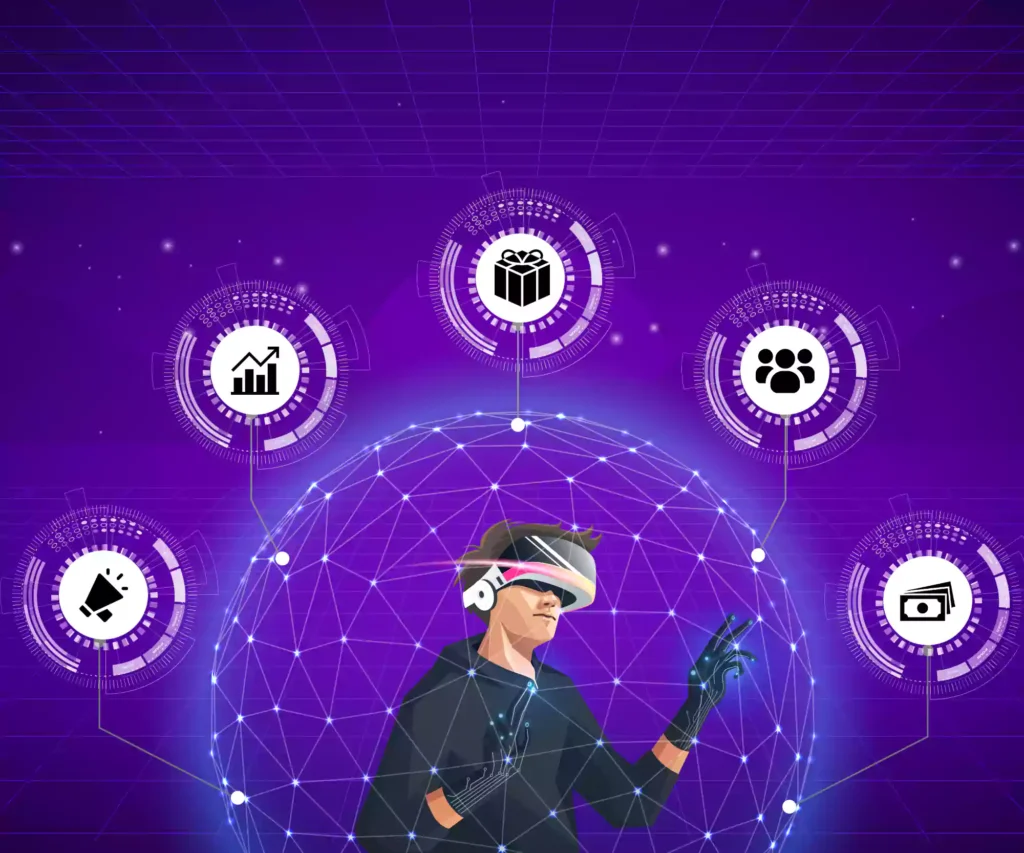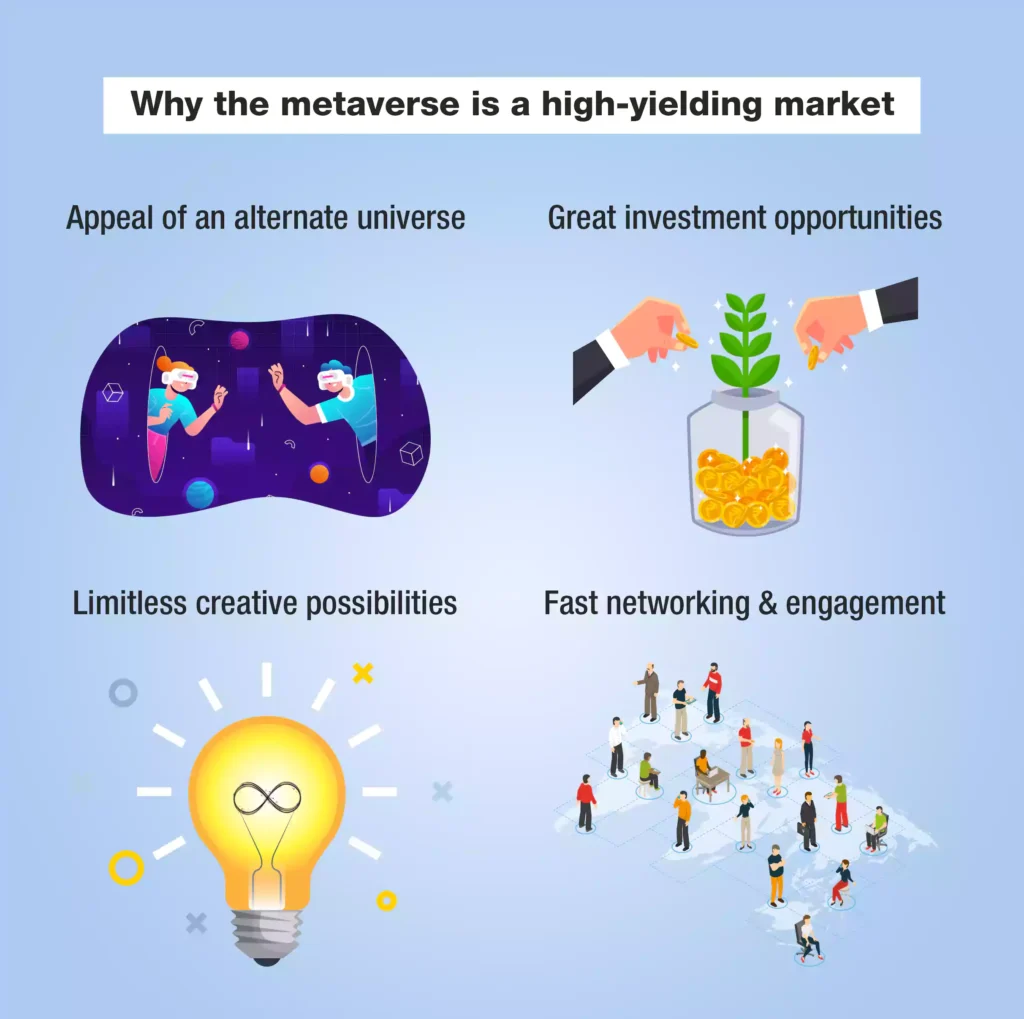
The metaverse has many names: future of the internet, embodied internet, experiential internet. As our earlier article indicated, the metaverse will soon imitate real life, co-existing parallelly with our world. It is safe to assume that the reigning royalty of Instagram and TikTok will find a way to conquer the metaverse. After all, influencers are omnipresent and powerful with the heft of thought leaders. As stated by Nielson and observed by us, influencer marketing is a great method for businesses to reach and engage their target audience. Additionally, this marketing style helps form professional relationships with individuals who can help grow the business. While the marriage of metaverse and influencers is an inevitable outcome of the digital marketing phenomenon, it is not yet clear how they will interact. From the looks of it, marketing and the metaverse will transform each other. Let’s explore some fascinating ways how this could happen!
Immersive partnerships
At present, influencer marketing involves influencers collaborating with a brand and then promoting it on their social media platforms. However, there are also other kinds of gimmicks. Take, for instance, giveaways: free samples given to followers who engage the most, thus serving the brand, the influencer, and the followers all at once. Social media takeovers are also popular, where the influencer gets posting privileges for the brand’s page. It’s an ad-lib and fun way to engage the audience.
While these are ‘tried and tested’ marketing tactics, they do not entirely guarantee the audience’s actual, active involvement. Enter the metaverse. Influencer marketing on the metaverse can immerse the audience in a way that makes them part of the content. For example, suppose the brand that the influencer is promoting is a cosmetic product. In such an instance, the influencer can invite some followers to join them for a make-over session on the metaverse. This tactic not only adds a third dimension to what would have usually taken place in 2D, but it also has the added advantage of providing data on which followers need special targeting. This way, the metaverse may transform how influencers collaborate with brands and companies.

Community expansion
Although it is inevitable that the metaverse will eventually dominate how we interact with the internet, it is still a niche area at the moment. Social media platforms are the leaders right now when it comes to online engagements. For the metaverse big-bang to happen, flocking of netizens (or metazens) is of utmost importance. This community expansion is where influencers and their innate marketing skill come in. By joining the metaverse, influencers will also be marketing the metaverse itself. As the community expands and grows with the help of influencer marketing on the metaverse, ‘follow me on metaverse’ or ‘let’s hang out on metaverse’ may just become familiar phrases.
Budget overhauls
Influencers can host events virtually, thanks to the metaverse. This will enable fans and followers to participate in the event in an immersive manner without needing to be present physically. Undoubtedly, the metaverse will substantially reduce the costs of coordination, planning, and other logistical support. It is also likely that there will be a revamp in the way transactions are undertaken. The use of cryptocurrency may become omnipresent. Influencers and brand managers can also start tokenising various virtual entities and creating NFTs, finding novel ways to market a product and monetise the process.
The new ‘AI’: Artificial Influencers
While it is true that most influencers are real-life people, one cannot ignore the presence of virtual influencers and avatars on social media. As we have elucidated before, the phenomenon of avatars as influencers is quickly gaining traction. As social media users adapt to and get drawn by these virtual influencers, so will the metaverse. With a virtual brand ambassador, a brand can craft a digital presence that reflects its essence, values, and target audience. Not to mention, it will also save money. Some popular CGI figurines are already darlings of the marketing world, even sometimes replacing real people. As influencer marketing further acclimates to the metaverse, the popularity of artificial ambassadors may soar further.
Whichever way you slice it, the talk of the town today is metaverse marketing. Will it be revolutionary and metamorphic in ways we cannot even imagine? Or will it just creep into our everyday lives and become a commonplace phenomenon over which nobody bats an eye? Only time will tell.


